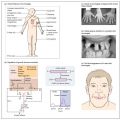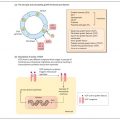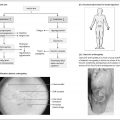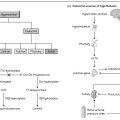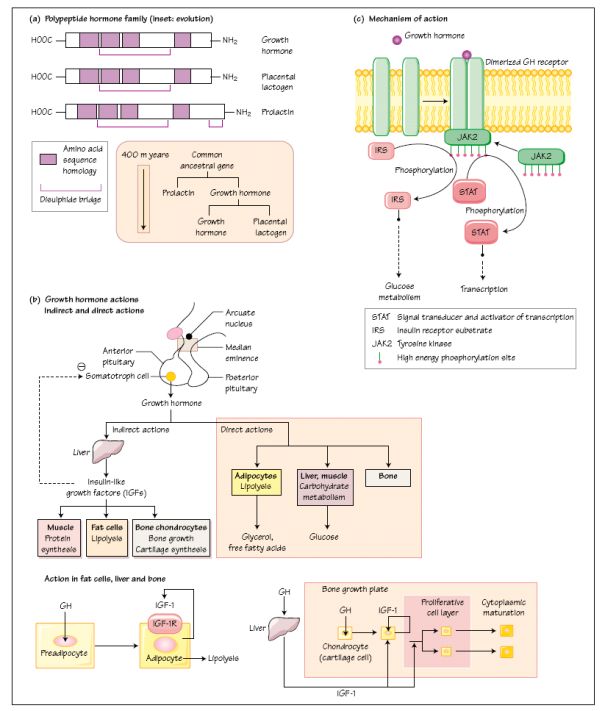
Growth hormone is necessary for the maintenance of good health in adult life as well as for the promotion of growth in childhood. Adults with growth hormone deficiency (GHD) are physically and psychologically less well than normal subjects due to the diverse nature of GH action. The vast majority of patients with adult GHD have pre-existing hypothalamic- pituitary disease, generally a pituitary adenoma. GHD may be part of the presenting illness or may be induced by pituitary surgery or radiotherapy used in treatment. A small percentage of patients with adult GHD will have presented with idiopathic GHD in childhood.
The adult GHD syndrome is characterized by abnormalities of metabolism, body composition and bone density and by psychological features of low mood, poor self-esteem, anxiety and social isolation. Adults with GHD have increased risk factors for cardiac disease reflected in reduced lean body mass, increased central fat deposition, raised cholesterol and harmful low-density lipoprotein concentrations and evidence of increased atheromatous deposits throughout the arterial system. Bone mineral density is reduced and there is an increased risk of fractures. The poor quality of life is a striking feature of the syndrome and has been demonstrated using recognized assessments of psychological health. GH replacement therapy is given as a daily subcutaneous injection of recombinant human GH.
Chemistry and synthesis
GH is synthesized in the somatotroph cells in the anterior pituitary gland. GH is a member of a family of polypeptide hormones, including prolactin (PRL) and placental lactogen (PL; Fig. 11a
Stay updated, free articles. Join our Telegram channel

Full access? Get Clinical Tree


